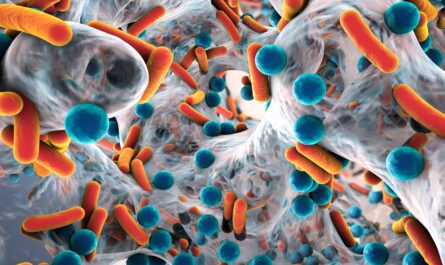Scientists from the Institute of Modern Physics (IMP) of the Chinese Academy of Sciences (CAS) and the Advanced Energy Science and Technology Guangdong Laboratory have successfully fabricated high-temperature-resistant polyethylene terephthalate (PET) separators for lithium-ion batteries. Published in the journal ACS Applied Materials & Interfaces, this study marks a significant advancement in the field of battery technology.
Lithium-ion batteries rely on separators to ensure their safe and efficient operation. These separators serve two crucial purposes – they act as insulation between the cathode and anode, preventing short-circuits, and they provide pathways for the movement of lithium ions. Improving the performance and safety of these separators is of utmost importance in the development of lithium-ion batteries.
In previous studies, researchers had attempted to enhance the performance of polyolefin separators by coating them with inorganic or organic materials. However, these methods fell short in providing fundamental improvements in the thermal stability of the separators. Thus, finding a solution to develop lithium-ion battery separators with high-temperature resistance has been a key objective for scientists in this field.
To tackle this challenge, the team of scientists utilized a combination of heavy-ion irradiation and chemical etching technologies to develop PET-based separators with remarkable high-temperature resistance. These PET-based separators exhibited several advantages over commercially available polyolefin separators. The researchers observed that the PET-based separators contained nanochannels with uniform size and distribution, leading to high electrolyte wettability. Additionally, the separators demonstrated exceptional thermal stability, withstanding temperatures as high as 180 °C. The test results further revealed that the PET-based separators exhibited good cycle performance at both room temperature and high temperature settings, with a high lithium-ion transfer number of 0.59.
The utilization of heavy-ion irradiation technology in this study not only marks a new application in the field but also introduces a competitive approach to manufacturing thermotolerant separators. The enhanced thermal stability of these separators opens up new possibilities for the development of safe and efficient lithium-ion batteries capable of withstanding high temperatures.
This breakthrough in battery technology holds significant implications for various industries and sectors that rely on lithium-ion batteries. Applications such as electric vehicles, renewable energy storage systems, and consumer electronics can greatly benefit from the development of high-temperature-resistant separators. This advancement brings us one step closer to the widespread adoption of lithium-ion batteries with enhanced safety and performance.
As the demand for high-performance and long-lasting batteries continues to grow, further research and innovation in this field will play a critical role in meeting these expectations. The successful development of high-temperature-resistant separators is a testament to the capabilities of scientists and their commitment to driving advancements in clean and sustainable energy storage solutions. With ongoing efforts, such breakthroughs will not only revolutionize the lithium-ion battery industry but also contribute to a greener and more sustainable future.
Note:
1. Source: Coherent Market Insights, Public sources, Desk research
2. We have leveraged AI tools to mine information and compile it




